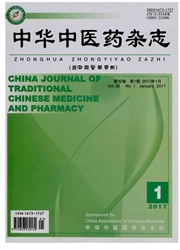

 中文摘要:
中文摘要:
目的:动态观察高脂饲料对大鼠血液指标的影响,探讨中医“痰浊”、“血瘀”证候的生物学基础。方法:高脂饲料喂养SD大鼠2、4、8、16周后,检测血脂、血液流变学、血浆内皮素和血清一氧化氮(NO)含量。结果:与正常对照组比较,高脂饲料喂养大鼠血清总胆固醇、低密度脂蛋白胆固醇及动脉粥样硬化指数LDL/HDL和TC/HDL在2周内迅速增高,一直持续到16周(P〈0.01);高密度脂蛋白胆固醇在16周时明显增高(P〈0.05);甘油三酯在凋时即有增高的趋势,在16周时明显增多(P〈0.01)。血液黏度在8周时明显升高,红细胞变形指数在8周时明显降低。内皮素明显升高,NO有降低的趋势,二者比值明显升高。结论:高脂血症大鼠的造模过程中,血脂、血液流变学及血管内皮损伤因素均出现了变化;这些可能反映中医“痰浊证”与“血瘀证”相关的生物学基础。
 英文摘要:
英文摘要:
Objective:To investigate the biological basis of phlegm syndrome (Tan Zheng) and blood stasis syndrome (Xue-Yu Zheng) in traditional Chinese medicine(TCM) through the dynamic observation of the changes of blood lipido hemorheology and vessel endothelium impairment. Methods: SD rats were divided into five groups randomly: the control group fed by normal diet, four model groups fed by 2-, 4-, 8- and 16-week high cholesterol diet, respectively. The indices of blood lipid hemorheology the level of plasma endothelin (ET) and serum nitric oxide (NO) were detected. Results: Compared with normal control group, serum total cholesterol (TC) and LDL-C levels raised significantly after being given hypercholesterol diet for 2 weeks, and this changes lasted till 16 weeks(P〈0.01). Atherogenic indexes including LDL/HDL and TC/HDL increased significantly after being given hypercholesterol diet for 2 weeks, and this change lasted till 16 weeks (P〈0.01). The level of HDL-C reached top in 16-week rats (P〈0.05). The level of riglycefide (TG) raised slowly in 2 weeks rats and increased significantly in the 16-week rats (P〈0.01). Whole blood viscosity and plasma viscosity increased obviously (P〈0.05, P〈0.01), and erythrocyte deformation index decreased in 8-week group significantly (P〈0.01). The endothelium-derived contracting factor endothelin increased significantly in 8- and 16-week groups (P〈0.01), the endothelium-derived relaxing factor NO had the trend of decrease, and thus the ratio of ET/NO increased significantly. Conclusion: There are some correlation between blood lipid, hemorheology and vessel endothelium impairment in the rats fed by high fat diet. These changes may be the important biological basis of the relationship between phlegm syndrome (Tan Zheng) and blood stasis syndrome (Xue-yu Zheng) in TCM.
 同期刊论文项目
同期刊论文项目
 同项目期刊论文
同项目期刊论文
 期刊信息
期刊信息
